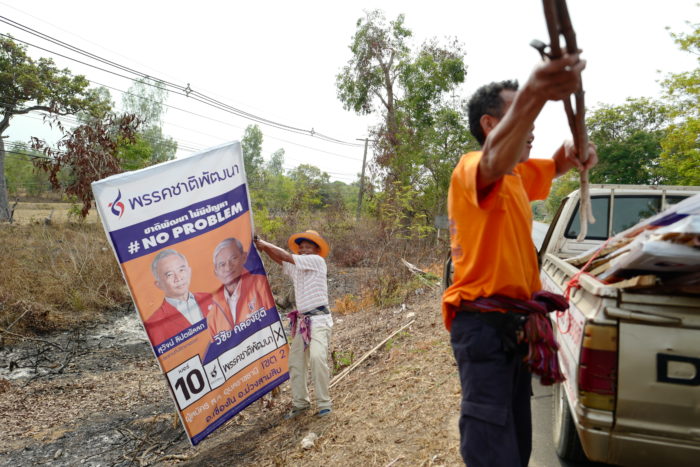USIP 2019 Elections Project

When the Thai military staged a coup d’etat on 22 May 2014, few people expected almost five years to elapse until the next election. The February 2014 election called by the previous Yingluck Shinawatra administration had been boycotted by the opposition, and was ultimately annulled by the Constitutional Court. That election, held during mass anti-government protests that paralysed Bangkok, featured extensive violence. One interesting feature of the 2014 election was an emphasis on peace messaging, including numerous candlelit vigils.
When Thailand finally held elections on 24 March 2019, they came in the wake of an extended period of military rule during which normal political life had been largely suppressed. A new constitution, ratified by a problematic 2016 referendum, put in place an electoral system designed to reduce the influence of the parties that had dominated Thai politics since 2001. In the end, coup leader and junta era premier General Prayut Chan-ocha was reappointed as prime minister by the new parliament. There was very little overt violence during the election, which was nevertheless held in a climate of intimidation and tight military-bureaucratic control.
The 2019 elections took place immediately after the literal demolition of the old Thai Parliament, so that initially new MPs had nowhere to go. This bizarre state of affairs was a metaphor for the state of Thai democracy.
A $118,570 research project ‘Peace Messaging in Thailand’s 2016 General Election’, funded by the United States Institute of Peace and based at the University of Leeds, subjected the 2019 Thai elections to close empirical and analytical scrutiny. It included a pilot project on the 2016 constitutional refererendum. The project team paid special attention to campaigning in Bangkok, the Northeast and the Deep South. The project has resulted in a series of journal articles, media commentaries and stakeholder briefings.
For the USIP project we created a set of Thai election maps, covering the 2001, 2005, 2007, 2011 and 2019 general elections, as well as the 2016 referendum. These are freely available for anyone to use.
